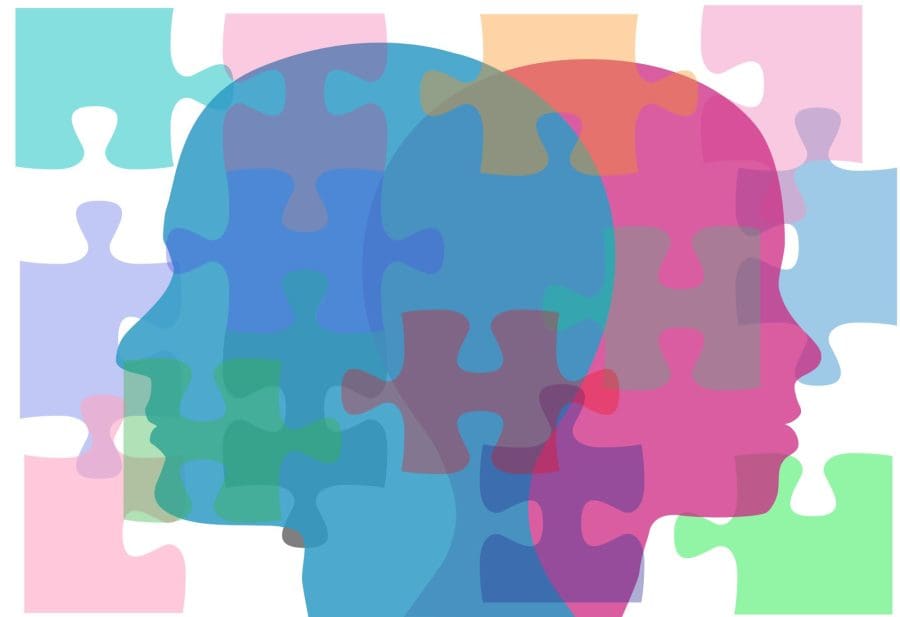Dealing with mental health issues can often feel like an isolating task. Many patients worry that they will have to face the challenge alone. But with group therapy activities, patients can find a sense of belonging in the journey toward recovery. This article will outline some of the best group therapy activities they can participate in.
Contents
What Are Group Therapy Sessions?
Group therapy sessions help patients come together to share experiences and learn new social skills to assist with healing. Trained therapists lead the groups, facilitate discussion, and introduce group therapy activities. You may hear group therapy sessions referred to as psychotherapy sessions. This is just another way to describe this gathering of group members, trained therapists, and psychologists.
Behavioral treatment programs that serve the Louisiana and Southern Mississippi areas continue to implement group therapy activities as a way to work toward collective healing. This helps to show that recovery does not have to feel or be isolating. Patients share with the group to help themselves toward recovery and to build trust with other group members, form healthy companionships, and actively practice using social skills.
Though some group members might feel nervous to enter a group setting and may worry about their privacy and the effectiveness of group therapeutic activities, studies have shown that these sessions can be instrumental in bettering one’s mental health.
When Are Sessions Most Helpful?
Group therapy activities are helpful in many different situations. Oftentimes, the care teams in charge decide what’s best on a case-to-case basis. The group setting has been successful in helping many patients with varying mental illnesses. At Baton Rouge Behavioral Hospital, group therapy sessions are used in the adult psychiatric care, crisis care, and dual diagnosis programs.
What you can expect in each program might vary depending on the mental health goals your program advisors and doctors help you to create.
The Benefits of Group Therapy Activities on Mental Health

There are many wonderful and surprising benefits to group therapy sessions, including:
- Talking with others who are experiencing similar struggles with mental health: They are able to understand the challenges of recovery, as they are working toward their own betterment alongside the other group members.
- Creating a support system: In these small groups and during group therapy activities, patients are encouraged to help one another by listening, giving suggestions, and holding other group members accountable to their recovery goals.
- Practicing and implementing new social skills: Knowing how to express one’s feelings, especially during hard times, is vital in building trusting and healthy relationships. Additionally, these skills help group members feel more confident in their own communities.
- Finding a sense of belonging: It is incredibly important to remember that you are not alone in your treatment journey. Sharing your story with a community that has had similar experiences can often feel like having a family.
Additionally, group therapy sessions create an open, safe space for patients to fully express complex, multifaceted, conflicting and confusing emotions to others who can sympathize. Group therapy sessions can also introduce new skill sets that will help long after therapy ends.
Sometimes the group setting will open itself up as a learning environment for group members to learn key terms and develop an awareness of their own mental health and treatment. Being a part of group therapy sessions offers patients the opportunity to think as individuals working toward particular mental health recovery goals. It also gives group members the opportunity to offer advice as growing experts on treatment.
Examples of Group Therapy Activities
Sometimes, group therapy involves patients sharing experiences with the group, practicing social skills, and building trust. However, group therapy activities can be more than sitting around a table, sharing experiences and advice.
In fact, crisis care programs specifically strive to bring engaging, challenging, and fun activities to group settings. This way, group members can find enjoyment in their recovery. Some groups use materials as simple as a piece of paper to introduce a new sense of engagement with mental health. Group members might use the paper to write a narrative, draw a portrait, or fold origami.
Art therapy and writing are particularly useful when coping with crisis, trauma, and other serious mental health conditions. These activities take negative memories and associations and turn them into something creative, beautiful, and expressive.
Examples of other group therapy activities include:
- Acting out written scenes to explore emotion, role-playing exercises, and practice letting go of self-judgment.
- Listening and moving freely to music as a way to connect the mind and body.
- Discussion on topics of culture, art, and history in a way that is respectful and enjoyable to group members.
- Creating a schedule for the group in a way that is creative and shows organization through teamwork.
- Using memory-games to keep track of something positive that a group member has shared.
- Using materials such as pieces of paper, blocks, or other elements to collaborate in building something as a group.
Family Members, Animals, and Creating Community

Group therapy activities are useful in creating a sense of belonging as patients work through specialized treatment programs. However, it is important to note that group therapy activities do not have to be restricted to patients only. In some group settings, family members of patients are also encouraged to engage with group therapy activities. This is incredibly important because one of the main components of working toward healing is building a strong support system both in and out of treatment.
Some of the activities might be lighthearted and enjoyable. Others might focus on the different skills family members can learn and apply to their relationships with the patients. The goal, then, is for all group members—family and patients—to work together. Healing is not a solitary process.
If including family members is not a possibility, animal companions might be brought in. The inclusion of therapy dogs, cats, and other small animals has been proven to help mood disorders during treatment. These animals represent a non-judgmental companion: a friend who will listen without interruption and encourage empathy, positive energy, and relaxation for group members.
Regardless of who is in the group setting (other patients, trusted therapists, family members, animal companions, etc.), the ultimate goal is to create a community that will provide support and guidance through each patient’s journey of mental health recovery. This sense of belonging is invaluable to the healing process. Recovery begins with an individual decision and it thrives with the support of others.
Group Therapy at Baton Rouge Behavioral Hospital
At Baton Rouge Behavioral Hospital, group therapy activities help introduce multiple approaches toward recovery and treatment. Our staff members and therapists are professionally trained in the benefits of group therapy activities. Therapists facilitate meetings with specific activities in mind that they believe will perfectly fit the needs of each specific group.
Our therapists understand the importance of choosing activities that not only offer respite from the often-exhausting process of recovery, but also aid in the effectiveness of healing. We aim to guide you as you create a community with other members as well as outside support systems. Our goal is to help you feel a sense of belonging, as you are an important asset not only to your own mental health treatment, but in others’ as well.















